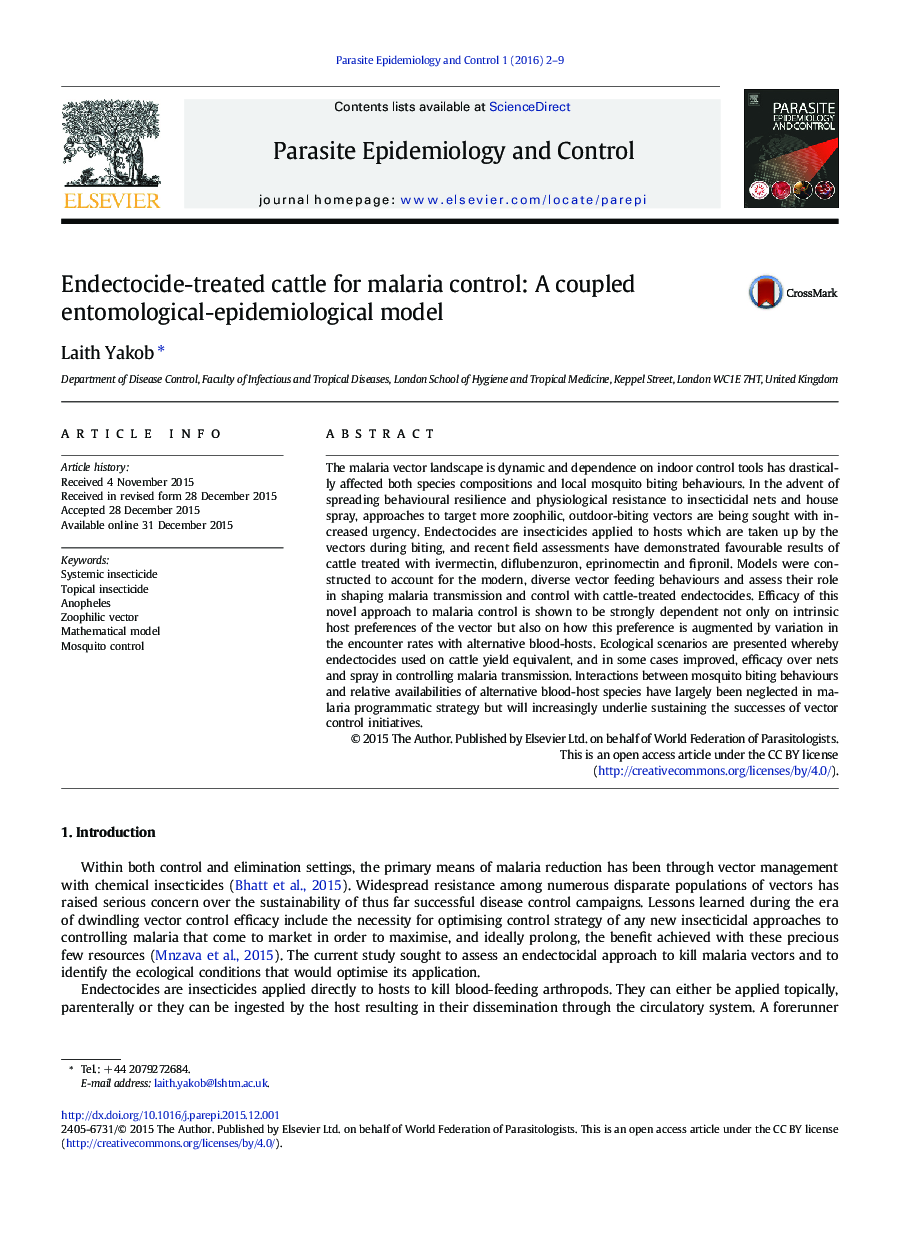| Article ID | Journal | Published Year | Pages | File Type |
|---|---|---|---|---|
| 2473657 | Parasite Epidemiology and Control | 2016 | 8 Pages |
The malaria vector landscape is dynamic and dependence on indoor control tools has drastically affected both species compositions and local mosquito biting behaviours. In the advent of spreading behavioural resilience and physiological resistance to insecticidal nets and house spray, approaches to target more zoophilic, outdoor-biting vectors are being sought with increased urgency. Endectocides are insecticides applied to hosts which are taken up by the vectors during biting, and recent field assessments have demonstrated favourable results of cattle treated with ivermectin, diflubenzuron, eprinomectin and fipronil. Models were constructed to account for the modern, diverse vector feeding behaviours and assess their role in shaping malaria transmission and control with cattle-treated endectocides. Efficacy of this novel approach to malaria control is shown to be strongly dependent not only on intrinsic host preferences of the vector but also on how this preference is augmented by variation in the encounter rates with alternative blood-hosts. Ecological scenarios are presented whereby endectocides used on cattle yield equivalent, and in some cases improved, efficacy over nets and spray in controlling malaria transmission. Interactions between mosquito biting behaviours and relative availabilities of alternative blood-host species have largely been neglected in malaria programmatic strategy but will increasingly underlie sustaining the successes of vector control initiatives.
